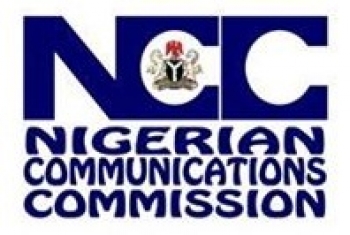Nigerian operators condemn 5% duty on telecoms, gambling: may sue government
Stakeholders of the Nigerian Telecommunications Sector have rejected the Government’s attempt to reintroduce a 5% excise duty on telecommunications services. The body has described the move as detrimental to the current economic reality. According to the proposal, all telecom services regulated by the Nigerian Communications Commission (NCC) will attract a 5% duty.
“Services, including telecommunications, gaming, gambling, betting, and lotteries, however, described, provided in Nigeria shall be charged with duties of excise at the rates specified under the Tenth Schedule to this Act in a manner as may be prescribed by the Service,” part of the proposal reads.
The Association of Licensed Telecom Operators of Nigeria (ALTON) has raised serious concerns about the effect of the 5% levy. Chairman, Gbenga Adebayo, said in a statement that its implementation will increase the existing financial burden of the subscribers.
“We stand by our objection to the proposed tax. We had written extensively about this before regarding the implications for consumers. Even as operators meant to collect these taxes, we believe it is insensitive to the subscriber today.”
He further expressed that the government is inconsiderate to have brought about the reintroduction of excise duty. “Given the challenges that the industry and the economy are facing, it would be insensitive for the government to introduce this type of levy on consumers at this time. We kick against it and think the government should rethink this proposal because the time is certainly not right for it,”
Similarly, the president of the Association of Telecommunications Companies of Nigeria, Tony Emoekpere expressed that the association was surprised by the proposal. He pointed out that they are currently studying the situation.
“We just received information about this reintroduction of the five per cent telecom tax, and we are currently studying the proposal to understand its full implications. The telecom industry has been clamouring for a tariff increase to sustain operations, and this new excise duty will only exacerbate the challenges we face,” Emoekpere said.
He further noted that the excise duty’s reintroduction will hurt subscribers and operators. “We are here to see how this excise duty will affect the industry, but it seems clear that it will hurt both telecom companies and consumers,” he said.
5% excise duty: a backstory
The 5% excise duty was first introduced in 2022 during President Muhammed Buhari’s Administration. After facing several backlash from various stakeholders, it was suspended by President Bola Ahmed Tinubu in July 2023.
The suspension was also followed by the import tax adjustment levy on certain vehicles, after concerns over its impact on consumers and the Nigerian economy.
In May, there was an attempt to reintroduce excise duty after it appeared in a loan document. The document outlined the excise duty as a condition for securing a $750 loan from the World Bank. It proposed that the excise duty be taxed on telecommunications services and levied on electronic transactions processed through the Nigerian banking system.
On Sunday, October 20, 2024, the Federal Government announced a proposed 5% excise duty on telecommunications services, gaming, and betting activities as part of a new bill to overhaul Nigeria’s tax framework.
The bill, titled, “A Bill for an Act to Repeal Certain Acts on Taxation and Consolidate the Legal Frameworks relating to Taxation and Enact the Nigeria Tax Act to Provide for Taxation of Income, Transactions, and Instruments, and Related Matters,” was dated October 4, 2024, and obtained from the National Assembly.
The reintroduction has since generated reactions from industry stakeholders and other relevant stakeholders.
Telecom Push for Tariff Hike
The Nigerian telecom operators have been pushing for a 10% tariff increase. According to them, this will cover operational costs and the effect of the rising foreign exchange regime and inflation.
The government has declined the proposal, urging the companies to implore strategic measures to counter inflationary pressures.
Reacting to this, Adebayo stated, “While we advocate that the current tax regime is not reflective of the economic conditions, the government has argued that people’s purchasing power has reduced and that we shouldn’t increase fees.”
“So, how come the government wants to tax the subscribers if they can’t allow us to increase fees to provide improved services reflective of the cost of operations?” he asked. “It’s like saying something else and doing something else.”


Tue, Oct 22, 2024.
by Emeka Opara